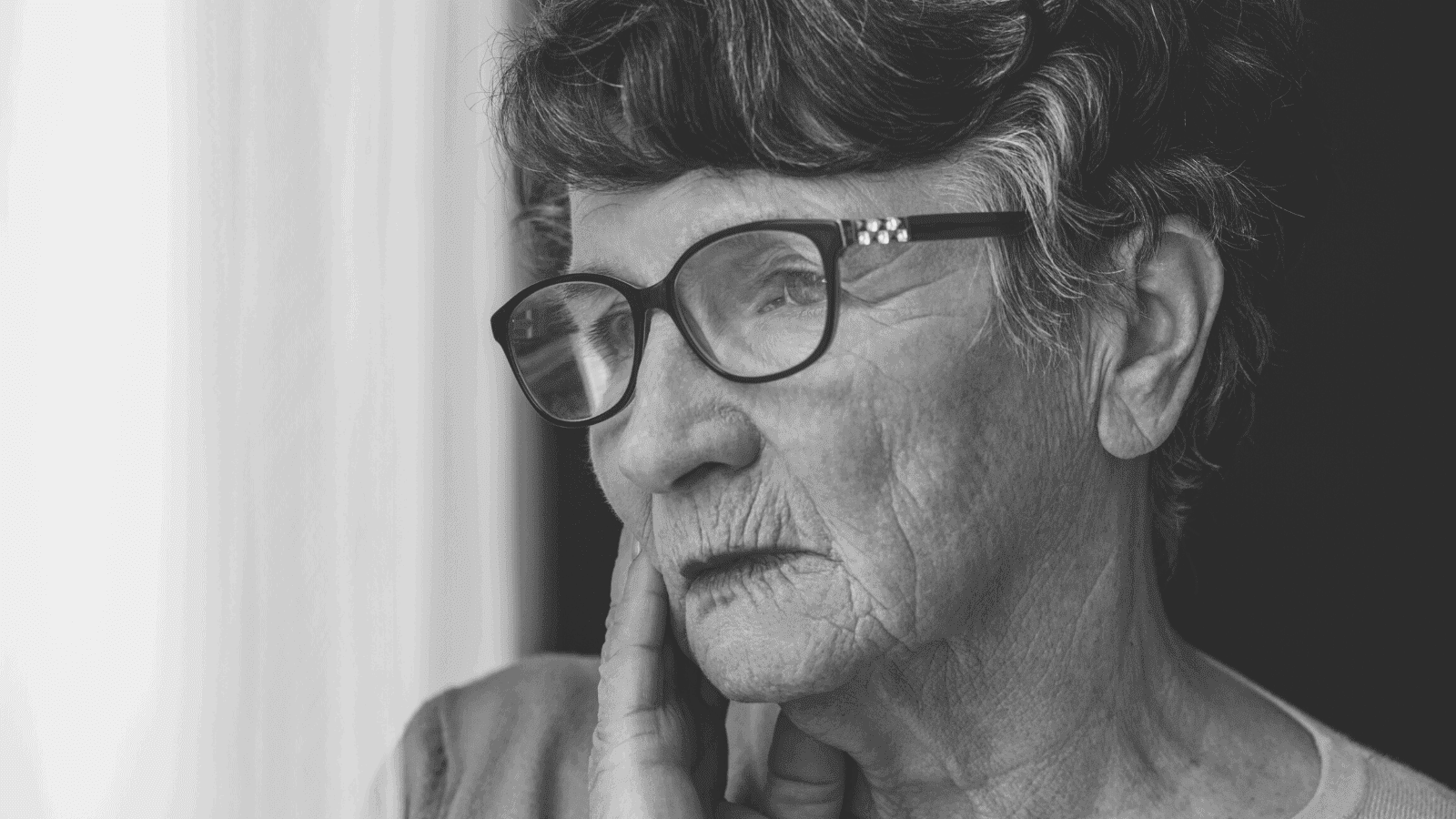As people begin to age, they become lonely due to social isolation and losing loved ones and friends. Being alone for long periods and isolated from the outside world can cause depression, anxiety, and other severe medical concerns. Yet, it’s estimated that one-fourth of elderly people over the age of 65 feel socially isolated and lonely.
You don’t have to be in a specific age group to feel lonely. People in their 40’s or 50’s can experience loneliness along with teenagers. It just seems that the older crowd experiences it more so due to retirement, loss of a spouse, and the inability to do the things they once loved.
The Dangers of Loneliness
There are both mental and physical health dangers to those who are lonely. Thankfully, there are ways that family and friends can help. Here are ten threats that can occur when elderly people become lonely.
1. Increased Risk of Heart Disease and Stroke
 You’ve heard a million times that stress can affect your body. When a person feels lonely or isolated from the world, it’s stressful. They can feel like an animal trapped in a cage longing for some social interaction and company.
You’ve heard a million times that stress can affect your body. When a person feels lonely or isolated from the world, it’s stressful. They can feel like an animal trapped in a cage longing for some social interaction and company.
The chance of a stroke increases by up to 32 percent, while the chances of developing a heart condition increase by 29 percent when a person is faced with chronic loneliness. It’s proof that you can die of a broken heart.
• How to Help
The easiest way to help in these situations is to make sure that your friends or loved ones frequently receive calls and visits. They should also have routine examinations at the doctor to make sure their health is in good shape.
2. Depression
Depression is one of the most common mental illnesses among elderly people. During periods of social isolation, it’s not uncommon for these folks to avoid getting out of bed, as they see no need to start another day. When they’ve lost a spouse and the children are all grown, they may feel like they’re not needed anymore.
• How to Help
Make sure that your friends or family members feel needed. Pets often help give them a reason to get out of bed and something to nurture when the kids are all raised. Additionally, any signs of mental illness need to be addressed by a medical professional.
3. Suicide
If you thought that suicide only happened to teenagers and young adults, you would be sad to learn that it’s commonplace in elderly people too. The problem is that it’s not always caught.
Fewer autopsies are done on the elderly because they feel that the cause of death is related to old age or medical problems. Many older people can easily overdose, and no one is the wiser.
• How to Help
Be vigilant and notice the signs of depression, and don’t let it go untreated. Suicide is common among all age groups and the tenth major cause of death in the United States.
4. Premature Death
Born into each person is the will to live. You must want to live, or you can give up on living. Have you seen a cancer patient that fights with everything they have in them because they have a family that loves them? Then there are the people that just give up, and their life slips away.
Elderly people can quickly lose their will to live if they don’t feel they have a purpose anymore.
• How to Help
Everyone needs to have friends and a purpose no matter their age. Get your friends and family members involved in community events and other groups to keep them active. The more engaged they are, the longer and happier their life.
5. Decreased Memory
Elderly people are at a greater risk of developing dementia. However, those who are lonely and socially isolated have even more substantial risks. When an individual is isolated and alone, it’s common for them to forget things and take a drastic downturn mentally.
• How to Help
Make sure that you help your friends or relatives keep their minds sharp. Word games and puzzles are an excellent option to help them stay focused. You’re never too old to learn new and exciting things. If you quit learning, then you no longer thrive.
 6. Antisocial Behaviors
6. Antisocial Behaviors
Agoraphobia is an anxiety-based disorder that affects more than nine percent of the population. When anxiety levels rise to severe heights, then a person may feel comfortable in staying at home. Going to the grocery store or social functions becomes unbearable due to the high anxiety associated with agoraphobia.
• How To Help
Don’t let a loved one sit in the house for days or weeks at a time. It’s essential for them to get outside in the sunshine and to breathe in the fresh air. Mother Nature can be very healing, and they need the Vitamin D from the sun. If this doesn’t help, then they need to see a mental health professional.
7. Alcoholism and Drug Abuse
Many people are surprised to learn that alcohol and drug abuse are just as common among the older crowd as teenagers. People who have inner struggles and feel lonely often try to medicate by using whatever they can get their hands on. When you’re drunk or high, then you won’t feel the pangs of isolation.
• How to Help
If you notice that your loved one is drunk or high, question them about the matter. Professional assistance may be needed. Yes, even the elderly can go to rehab too.
8. Poor Decision-Making
Have you ever heard the saying that “An idle mind is the devil’s playground?” Anyone who experiences feelings of loneliness and sadness can do things in the spur of the moment they regret later. They will do anything to make the inner pain feel better, and sometimes, these feelings cause them to do crazy and even illegal things.
• How to Help
Someone of advanced age must have someone help them with their financial matters as well as medical ones. They need someone overseeing their daily activities to make sure they don’t make careless decisions, especially financial ones geared towards self-medicating.
9. Increased Risks of Cancer
It’s challenging to think that being lonely can bring on such major health issues as cancer. However, a recent study conducted by the University of Surrey and Brunel University London found that people who experience isolation and loneliness are at an increase for inflammation. Inflammation in the body is one of the leading causes of cancer.
Your mental health has a profound effect on your physical wellbeing. Both aspects must be observed. Many elderly folks don’t see the issue until it’s too late.
• How to Help
Regular checkups at the doctor are essential when you’re at an advanced age. Routine bloodwork should be done at least two times per year. Many tumor markers can be identified in the blood and help catch cancer or other medical problems sooner. These tests save lives.
10. Poor Sleep Quality
We all need beauty sleep and plenty of it. It’s recommended that a person get between 6-7 hours of rest each night. It’s a common fact that people sleep less as they get older. However, when they’re dealing with stress, anxiety, medical issues, and loneliness, then their sleep cycle can be even further disrupted.
When a person doesn’t get sufficient rest, it can take a toll on their health. One problem with insufficient sleep levels is it lowers your body’s immunity, which makes you more susceptible to disease and illness.
• How to Help
Ask your elderly person often about their sleep health. If they’re not getting sufficient rest, then you need to get to the bottom of it. Taking a natural sleep aid like melatonin may be the answer, or they may need to have a sleep study to ensure there’s nothing like sleep apnea or another sleep disturbance occurring.
 The Takeaway on Loneliness and the Elderly
The Takeaway on Loneliness and the Elderly
While you don’t have to be elderly to be lonely, it’s apparent that people over the age of 65 years are more at risk. Retirement, children’s growth, and enjoying free time all seem like amazing things until there’s nothing to do. If a retired person sits around the house day in and day out, then they will pass quicker than someone who maintains an active lifestyle long beyond their working years.
It’s important to socialize, have friends, stay active in the community, and have something to look forward to each day. A pet is an excellent option for someone who feels isolated and alone. If someone is physically able to care for a pet, animals are a great companion and can help to fill the void felt by the elderly population.
Many people are so busy in their life that they forget about the elderly people in their family. It’s essential to take time out of your day and week to make sure they have what they need and know they’re loved. Sending cards in the mail, phone calls, surprise visits, and dinner dates are all necessary to keep their mental and physical health in check.

















